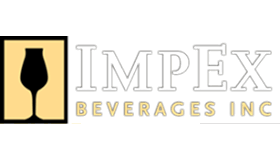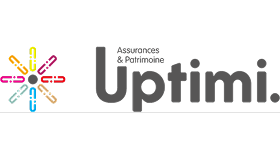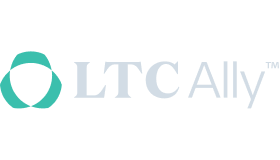Problem
Chaos in Contract and Billing Workflows
A fast-growing waste management firm was wrestling with growing pains. With thousands of contracts across multifamily, healthcare, and commercial properties, their operations were bogged down by sprawling spreadsheets, redundant manual data entry, and disjointed views of pricing and billing.
Their process for estimating, contracting, and billing for waste hauling services—particularly compactors—was fragmented. Key pricing information was spread across multiple places: previous invoices, estimates, and vendor agreements. Without centralized logic, proposal errors crept in and savings calculations were inconsistent. As they scaled, the team faced mounting frustration, performance slowdowns, and questions about their long-term tech stack.
Q1
Solution
Unified Pricing + Streamlined Data Architecture
Working closely with SmartSuite's solutions team, the firm rebuilt three interconnected workflows: previous pricing, estimated pricing, and contracted vendor pricing. These were unified into a dynamic, modular system that allowed for complex compactor billing logic—calculating per-ton fees, haul thresholds, and automatic fee allocations.
They also introduced role-based filtered views for proposal teams, built record creation automations, and established dynamic filters to ensure data relevancy by user. By integrating lookups between properties, deals, and services, they created a traceable pricing lineage from proposal to billing.
Additional improvements included:
- Auto-calculated savings logic tied to current and proposed compactor costs
- Use of Get List functions to optimize lookup chains and eliminate lag
- Dynamic contact entry forms to distinguish property- vs. company-level contacts
- Structured data exports to streamline QuickBooks billing integration
Q2
Results
Precision, Speed, and a Scalable Framework
SmartSuite didn’t just replace spreadsheets—it reshaped the business architecture. Previously disconnected pricing stages are now linked, ensuring accuracy from vendor quote to invoice. Teams gained visibility into proposal performance, profit margins, and pricing variances across properties.
With every compactor agreement and service line now standardized, proposal accuracy rose, time-to-quote dropped, and contract savings became easier to justify and report. Automated checks help prevent duplicate property records, and integrations with Make + DocuSign are expanding proposal automation even further.
“This is the first time we’ve truly understood what each compactor haul should cost—and we can now prove savings in a click.”
— Director of Operations, Large-Scale Waste Management Provider
Q3






%2520(1).jpeg)
.png)
.png)


-min.png)
-min.png)
-min.jpeg)
-min.png)
-min.png)

.png)
-min.png)



-min.jpeg)
-min.png)
-min.png)
-min.jpeg)
-min.png)
-min.png)



-min.jpeg)
-min.png)
-min.png)
%2520(1).jpeg)
%2520(1).png)
%2520(1).png)
-min.jpeg)
.png)
.png)
-min.jpeg)
-min.jpeg)
-min.png)
-min.png)



-min.jpeg)
-min.png)
-min.png)
-min.jpeg)
.png)
.png)
-min.jpeg)
-min.png)
-min.png)
.jpeg)
.png)
.png)
-min.jpeg)
-min.png)
-min.png)
-min.jpeg)
-min.png)
-min.png)

-min.png)
-min.png)



-min.jpeg)


-min.jpeg)
-min.png)
-min.png)
-min.jpeg)
-min.png)
-min.png)
%2520(1).jpeg)


-min.jpeg)
-min.png)
-min.png)




.png)
.png)
%2520(1).jpeg)


-min.jpeg)
-min.png)
-min.png)
-min.jpeg)
.png)
.png)

.png)
.png)
-min.jpeg)
.png)
.png)
-min.jpeg)
-min.png)
-min.png)
-min.jpeg)
-min.png)

%2520(1).jpeg)


-min.jpeg)
-min.png)
-min.png)
-min.jpeg)
.png)
.png)
%2520(1).jpeg)
.png)
.png)
-min.jpeg)
%2520(1).png)
%2520(1).png)



-min.jpeg)
-min.png)
-min.png)






.jpeg)
.png)
.png)
.jpeg)
.png)
.png)
.jpeg)
.png)
.png)
.jpeg)
.png)
.png)



%2520(1).jpeg)








-min.jpeg)
-min.png)
-min.png)





















-min.jpeg)
-min.png)
-min.png)
-min.jpeg)
-min.png)
-min.png)






-min.jpeg)
-min.png)


.png)
.png)






%20(1).jpg)
-min.png)
-min.png)
.jpg)
-min.png)
-min.png)



-min.jpeg)
-min.png)
-min.png)









%2520(1).jpeg)
%2520(1).png)
%2520(1).png)






-min.jpeg)
-min.png)
-min.png)



%2520(1).jpeg)
.png)
.png)
%2520(1).jpeg)


%2520(1).jpeg)
%2520(1).png)
%2520(1).png)



-min.jpeg)
.png)
.png)



.jpeg)
.png)
.png)









.jpg)
.png)
.png)
.jpg)
.png)
.png)



.jpeg)
.png)
.png)

.png)
.png)
.jpeg)
.png)
.png)
.jpeg)
.png)
.png)

.png)
.png)
.jpeg)
-min.png)
-min.png)